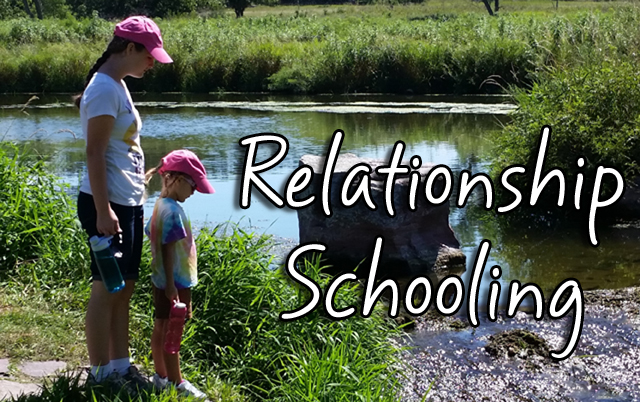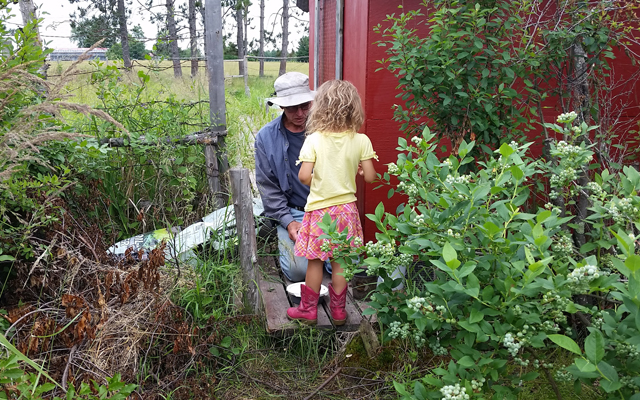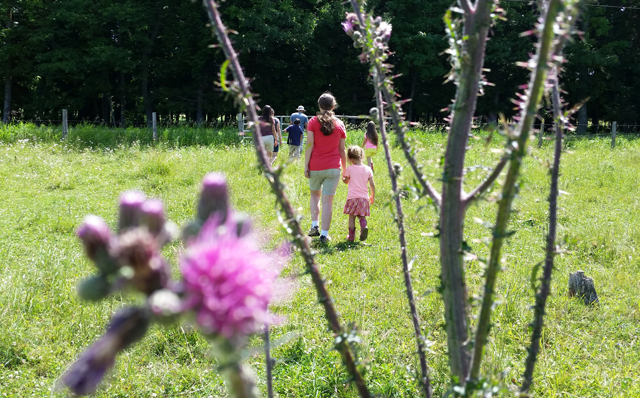Relationship Schooling


Homeschooler small talk inevitably moves to schooling approaches: classical, unschooling, eclectic (code for whatever works!). Nobody ever says relationship schooling. As full-time RVers, relationship schooling has been an integral and spontaneous part of our whole family’s education.
What is relationship schooling?
Relationship schooling is learning through interactions with real people. It doesn’t necessarily involve mentor/apprentice roles, although it might lead to that. Rather, the learning starts through connections with people you encounter—the usher in church, the pastor’s wife, a grocery store clerk, the librarian, the farmer you buy eggs from, the crazy cat lady next door, someone on the rough side of the soup kitchen counter…anyone.

Why have you never heard of this term?
I might have made it up.
How does it work?
There is no set method to relationship schooling. All you really have to do is keep your ears open, suppress your introverted tendencies (cookie bribes work), and “connect” whenever the opportunity arises.
When you study World War II, talk about Mr. Kinzey who ushers during early service and wears a military tie tack. With your kids in tow, ask him a few tactful questions and thank him for his service.
When you pick up eggs from Farmer Greeley at Saturday’s market, ask questions…again, with your kids in tow. Ask why his yolks are gorgeous orange while the grocery store yolks are jaundice yellow. Ask about overhead costs, overwintering chickens, how egg production is going, or if chickens get the bird flu.
When the post office isn’t crowded and, yes, your kids are in tow, ask questions. What determines postage prices? How do you get a postal job? What does it mean to “go postal?” Okay…maybe not that.
Essentially, talk to real people to learn about real things—jobs, history, lifestyles, health, faith—you know, life.
What kind of people are relationship teachers?
Everybody has a story—every life is a lesson. So look everywhere your life takes you. Here are just a few examples of people we’ve met who have contributed to our relationship learning:
- pastors, teachers, foreign missionaries and their spouses
- professional musicians, producers
- oil rig workers, lumberjacks
- ranchers, deer farmers, cattle farmers, chicken farmers, alpaca farmers, equestrian professionals
- librarians, authors, actors, dancers
- quilters, inventors, chefs
- raw milk “renegades,” hunters
- taxi drivers, ferry drivers, truckers, delivery people
- mental health experts, special needs friends, parents of children with developmental disabilities
- vineyard managers, wine producers
- veterinarians, dentists, doctors, nutritionists, dieticians, herbalists
- retired spies, veterans, current military personnel
- biologists, national park employees
- business owners, Google employees
- people from around the world
- people pushing their 90th or 100th birthdays—they’ve seen a lot!

Then what?
Relationship schooling doesn’t have to lead to a longterm relationship. It might, but it absolutely doesn’t have to. Instead it could stop with meeting the person, or it could begin with, end with, or involve any of the following connected activities:
- read a book
- watch a documentary
- volunteer
- write a thank you note
- research a career
- do a unit study
- learn a new skill
- make a new friend
- have a really good conversation about a whole lot of things
Relationship schooling opens our eyes to lives outside our circles, rewarding the family with increased understanding and appreciation for others, possible career or life paths, and a whole lot of interesting information. Give it a try!
Christy Bagasao is a freelance writer, wife to Christian music missionary Stephen Bautista, and roadschooling mother of eight highly adaptable children. The family travels the United States full-time, living in a 30-foot travel trailer with a 100-pound dog and 10-pound cat taking up more than their fair share of space. Christy blogs about simple living at TheSimpleHomemaker.com.














































